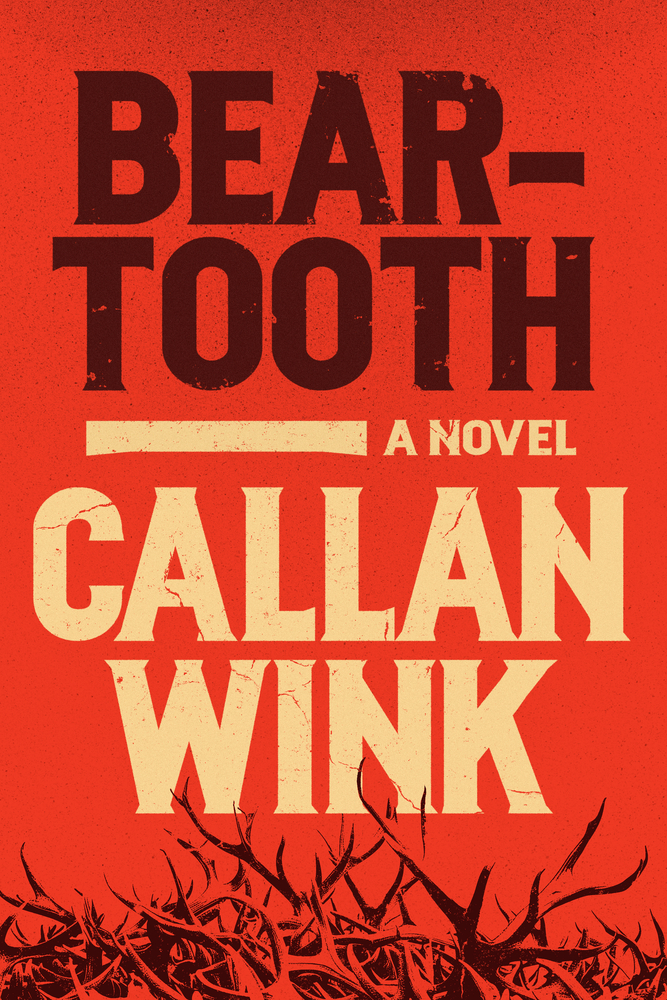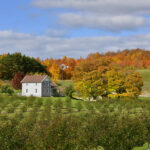Being a novelist must be hard. I imagine that you set out to write something new, or at least your own, but you must use styles, plots, characters, and words passed down from others, now worn down by ages of good and bad use. You must trade in these clichés or none will understand you. And only once you have lured your readers in with them can you show them something they didn’t know was missing.
Being a man is also hard. You are born into a motley arrangement of roles, tropes, interests, and tasks—many of which don’t fit together and all of which have long been repeated so often and uniformly—that you must inhabit and manipulate to become yourself. But you can’t just organize these life forms into some product you think is your own. The sum isn’t greater than its parts. You’re only acting like a man.
With Beartooth, up-and-coming novelist Callan Wink tries the harder feat of being a man’s novelist. His product is the story of two brothers, Thad and Hazen, living on the borders of isolation and legality in rural Montana, poaching and collecting for a crude personage “the Scot,” who has a kilt and bagpipes and a black Suburban.
To begin crafting this story, Wink uses many tropes now familiar to readers. I confess this made the first sixty pages hard to enjoy. “Of course, he had to drink Coors beer in Montana.” “Do that many outdoorsmen use ‘glass’ as a verb, or is that just a tic picked up from Cormac McCarthy?” And foremost, “a 6’5” hairy villain named the Scot with a kilt, a love for bagpipes?” Of course, the brothers don’t want to get deeper into working for the Scot, but of course their finances force them to do just that. And of course, one of the brothers is measured and better at thinking while the other is impulsive and better at outdoorsing. The list goes on, leading me to judge this as a book of pretense and not substance.
I was wrong. For as I continued reading, I found that Wink has not simply played haphazardly with an abundance of tropes but collected them together, arranged them in a pile—so he could then throw them aside and press deeper into the thicket of questions of manliness. The Scot is not what Thad and Hazen are dealing with. Instead, they, and Thad most of all, are struggling to find who they are within, and beyond, what they do.
It’s now common (read passé) to debate the crisis of masculinity. It is passé, not because it is unimportant, but because the debate stays on the level of what roles men fulfill, what parts they no longer play, on where in the social and political system they should fit in the future. Understandable, given the assumption that sex and gender are essentially social categories—but wrong. For manliness is first a matter of men, individual persons, souls if you’ll allow the word, and only thereafter of the categories to which these men belong. If, and because, we fail to acknowledge this fact, we just keep pretending—and so keep treating men in crisis as their parts and not as themselves. It’s a paradox of the social worker’s sincerity: by caring so much, using the conceptual tools they’ve been given, they only make matters worse.
A typically American way of escaping that paradox is to escape from society for a time into the wilderness. If that’s a cliché by now, at least it’s because it’s on the right track. Wink lands his brothers in the deep wilderness of Yellowstone, doomed for a big job that’s going to go wrong. There they witness the wonders of nature worthy of deepest contemplation. In these scenes, Wink transcends the tropes and excels at the kind of nature writing that blends the direct, the scientific, and the spiritual:
There was something about nature that was twice told. The human vascular system resembled the drainage of mountains, resembled the branching prongs of a lightning strike resembled the xylem and phloem of trees from roots all the way to the lacework veins of the leaves. It was something Thad had thought about but had never been able to pin down. It was almost enough to instill some sort of faith in a creator, some sort of guiding hand, an artist with a limited palette. Things were so remarkably similar when it seemed like they should be more different.
The retreat into nature, stripping the individual of society, introduces a different community. It is one in which baleful uniformity is traded for similarity and distinction, unique individuals finding their place in the chorus of what even the skeptic could venture to call “Creation.”
The brothers’ job does go wrong. One is deeply wounded physically, the other emotionally, and then the first emotionally again. For a time, they lose the ability to do what they have done their whole lives. So the plot must slow to focus on recovery and withdrawal. Their mother comes back, and they learn to speak with each other again. Then she leaves. Until finally, one of the brothers is left totally alone, “and he figured that was how it would be for a long while. He realized for the first time that acute aloneness has something of a presence.” And as odd as this may seem, that “acute aloneness” is just the presence this brother needs.
If there is any moral to the story, which of course is not the first thing any novel should be going for, it is that one’s manhood is a matter of one’s selfhood. And to find yourself, you must go to the wild, suffer, and lose—your family, loves, prowess, identity, whatever else is keeping you from yourself. Once you are where you have nothing, there you shall start to notice everything, including your masculinity.
If the reader worries that is an austere, lonely moral, Wink offers some closing comfort: At the end of the story, one brother feels, after all that has happened, he is now healed enough to go out dancing. To meet a woman.
It is not good for man to be alone, after all.
Image Credit: Albert Bierstadt, “Yellowstone Falls” (1881) via Getarchive.







1 comment
Rob G
Thanks for this, Casey — sounds like a very interesting book. I’ve just grabbed a copy from the library.